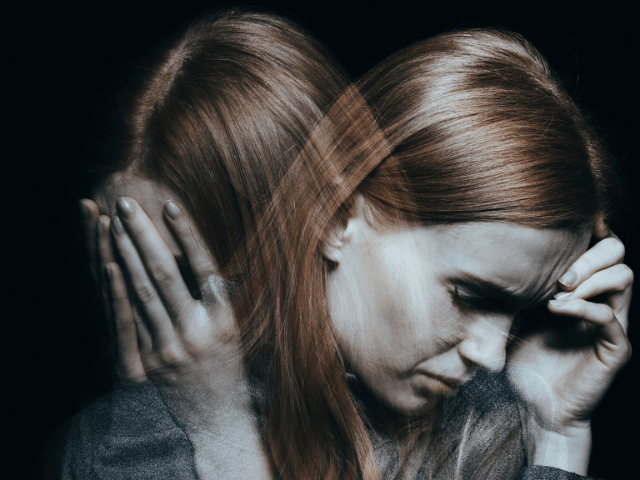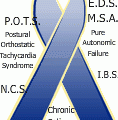Table of Contents
Is dysautonomia debilitating? Postural Tachycardia Syndrome or POTS can be very debilitating. Fortunately, there are many adjustments to lifestyle that can lead to an improvement in symptoms. It’s hard work, but can make a real difference! Is dysautonomia debilitating? Dysautonomia or POTS can have an impact on physical, social and psychological aspects of life. And because symptoms can fluctuate wildly from one day to the next, it can make management a challenge.
Have you’ve ever wondered why two people who experienced the same life events have different reactions? One may have full control over themselves especially when dealing with the challenges of life, while the other one might feel stressed out. Most of us have experienced some form of hostile symptoms of dysautonomia. Usually, it’s hard to control even in ordinary circumstances. What is the reason for this? Does it have something to do with how you’re born? Or perhaps this is something you have developed in the course of life. In this article, you’ll learn is dysautonomia debilitating?
Factors that Make Dysautonomia Debilitating
Is dysautonomia debilitating? Factors which may make dysautonomia symptoms worse include symptoms tend to be worse in the morning, particularly after getting out of bed after waking up. Some people also experience rapidly moving from lying or sitting to a standing position. There are also symptoms of dehydration, environmental heat, and menstrual periods.
Alcohol which causes the blood vessels to widen, therefore lowering blood pressure can also worsen your symptoms. It may also include exercise or physical exertion; prolonged bed rest or de-conditioning; prolonged standing. It can also worsen because of stimulants such as tea, coffee, alcohol and nicotine as well as large heavy meals high in refined carbs.
Family History
Is dysautonomia debilitating? Dysautonomia isn’t always hereditary. However, studies have shown that there are certain genetic variations that have a much higher risk of experiencing dysautonomia disorders. According to a study by the National Institute of Mental Health, there are a lot of people suffering from dysautonomia disorder. According to most statistics, people who came from families or who have family members that have a history of OCD are nearly 10x more likely to be diagnosed with the same condition or anything related to dysautonomia/ mental disorders. Around half of all patients who are experiencing dysautonomia disorders usually have relatives who have been diagnosed with the same condition.
Scientists have discovered that many people with mental disorders or have a family history of it have differences in the genes that regulate the neurotransmitters of their brain. This means that the way their brain regulates the serotonin and also glutamate could be different for those who have a genetic history of the condition.
Genetics
Is dysautonomia debilitating? While hereditary may be one of the reasons of developing dysautonomia disorder, other factors also come into play such as environmental conditions, traumatic experiences, pressure at home and at work, etc. These factors can also cause someone with no genetic history to develop mental health issues like dysautonomia. There is however enough evidence to conclude that genes do play a role in shaping the emotional and psychological behavior or tendency of a person.
For now, it’s important to note that people should pay close attention to how they react towards situations; and make sure to consult a professional if they believe that they have dysautonomia disorder regardless of their family history.
Dysautonomia Risk Factors
Is dysautonomia debilitating? Genetic variation, also known as genetic variability is a factor that’s usually linked with causing dysautonomia or depression in teens. According to research, one or more genetic variations are usually enhanced yet can also diminish the risk of dysautonomia in adolescents. These findings are based on a hypothesis called Differential Susceptibility.
This suggests that the emotional development within individuals is linked with the interaction of genetic variations plus environmental factors. As mentioned earlier, environmental facts can include traumatic events, social problems, family problems etc. The presence of these factors usually explains a lot why different people have different reactions to the same situations.
Mental Disorders
Is dysautonomia debilitating? Genetics play a significant role when it comes to developing mental disorders such as dysautonomia but again other factors can contribute towards the development of this condition. Environmental conditions plus the way the brain functions are believed to have a much greater impact.
Dysautonomia has been linked with irregular functioning of neurotransmitters in the brain. This can disrupt the proper transfer of messages and could cause some altercation. This is evident in the way our brain reacts to certain life events particularly stressful one which can lead to dysautonomia. There are also areas of the brain that are responsible for regulating emotions; researchers believed that in people diagnosed with dysautonomia, their mood regulators function abnormally. For instance, a malformed link between the limbic system and the pre – frontal cortex usually restricts the individual’s risk of evaluating capability. This usually affects the person to create the right decisions.
Lifestyle Factors
Is dysautonomia debilitating? This is again the most dominant element that is responsible for developing dysautonomia even in mentally healthy people. Certain life incidents like death, an accident, abuse, divorce, or other traumatic experiences usually contribute to dysautonomia. This is especially true for people diagnosed with a condition that’s characterized by excessive worry about certain life events.
Another factor is by using or withdrawing from substances like caffeine, nicotine, alcohol, and other addictive elements. These things can definitely worsen the dysautonomia condition.
Medical Management
Management needs to be individualized, with non-pharmacological therapies being the foundation of any dysautonomia treatments. In milder cases of dysautonomia, these therapies might be enough to control symptoms, and might be all that is needed.
Input from other health professionals may be needed and might include specialist nurses, psychologists, dieticians, occupational therapists and exercise therapists. Throughout the United Kingdom, availability of these services varies from area to area and may not be available locally to all patients.
Daily Tips
Tip #1
Try not to fit too much in your diet because there will always be another day. Take your time and avoid rushing. When it comes to setting goals be realistic and; ensure that they are achievable. If there is something more challenging you need to do on a particular day, plan your activity, rest well beforehand and create time to recover afterwards.
Tip #2
When it comes to limit learn to know and live within your limits. Keep in mind that the autonomic nervous system is the body’s fight/flight mechanism and is activated during periods of stress. Dysautonomia patients tend to be very sensitive to physical and psychological stressors.
Tip #3
Infections and other illnesses can worsen symptoms. Make sure to rest and accept a reduction in activity levels if you become unwell. You may take longer than expected to recover. Try to do something each day, even for just a few minutes.
Tip #4
Be reminded that although keeping as mobile as possible is important, for those with severe symptoms, the use of a wheelchair or mobility scooter may be helpful to manage daily living. And lastly make sure to eat and drink regularly. Symptoms are often exacerbated on busy days when routine eating and drinking patterns change; make sure you keep to your routine with diet and fluids.
Keep in Mind
Is dysautonomia debilitating? The genetic factors and the environmental conditions that contribute to dysautonomia disorder may not be completely solved anytime soon. However, this shouldn’t stop you from working on your issues and being proactive. It’s important to know that feelings of dysautonomia are only temporary. For some people it is just a period in their life. Dysautonomia disorder is a mental illness that can show its symptoms even if the triggering event happened a long time ago.
Is dysautonomia debilitating? This only means that it is normal to experience occasional dysautonomia but if one is diagnosed with a disorder it shouldn’t be ignored. If you are suffering from dysautonomia to the point that it is negatively affecting your life, make sure to reach out to a professional therapist. This is the best way to help you overcome your negative thoughts and feelings.






 I love to write medical education books. My books are written for everyone in an easy to read and understandable style.
I love to write medical education books. My books are written for everyone in an easy to read and understandable style.